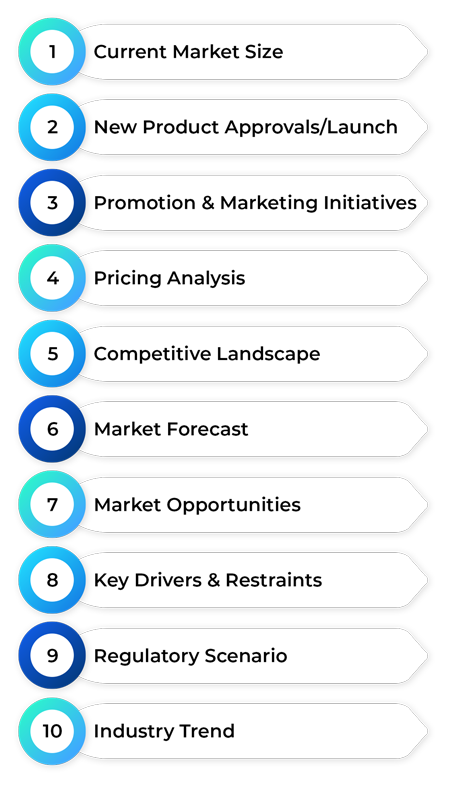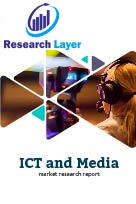 +1 915 229 3004 (U.S.) |
+1 915 229 3004 (U.S.) |  +44 7452 242832 (U.K.)
+44 7452 242832 (U.K.)
 +1 915 229 3004 (U.S.) |
+1 915 229 3004 (U.S.) |  +44 7452 242832 (U.K.)
+44 7452 242832 (U.K.)

The Smart Labels Market Size was valued at USD 5.6 Billion in 2022. The Smart Labels industry is projected to grow from USD 6.52 Billion in 2023 to USD 25.16 Billion by 2032, exhibiting a compound annual growth rate (CAGR) of 18.45% during the forecast period (2023 - 2032). Rising sales of electronic goods, increased customer knowledge of their rights, and technology developments like big data and digital printing are key market drivers fueling this growth.
Download Free Sample to learn more about this report
The market CAGR for smart labels is driven by the rising adoption in supply chain management. As businesses strive for enhanced visibility and traceability across their supply chains, Smart Labels offer an effective solution. These labels enable seamless tracking of products from manufacturing facilities to distribution centers, warehouses, and retail stores. The integration of RFID technology in Smart Labels allows real-time monitoring, inventory management, and automation of various processes, leading to improved efficiency, reduced costs, and minimized errors. Furthermore, Smart Labels enable businesses to respond swiftly to recalls, optimize inventory levels, and enhance supply chain security, fostering better customer satisfaction.
Additionally, counterfeit products significantly threaten brand reputation and consumer safety, compelling companies to invest in robust anti-counterfeiting solutions. Smart Labels equipped with track-and-trace technologies offer an effective means to tackle this problem. By integrating unique identification codes and tamper-evident features, Smart Labels provide a reliable authentication mechanism throughout the supply chain. Consumers can easily verify product authenticity by scanning the label using a smartphone or NFC-enabled device, ensuring they are purchasing genuine products. As counterfeiting concerns continue to rise across various industries, such as pharmaceuticals, luxury goods, and electronics, the demand for Smart Labels as a means of combating counterfeiting is expected to witness substantial growth.
With the increasing focus on enhancing consumer experiences, Smart Labels are becoming an integral part of personalized marketing strategies. These labels enable direct interaction between brands and consumers, providing valuable information, promotions, and personalized recommendations. By incorporating NFC or QR code technologies, Smart Labels allow customers to access additional product details, user reviews, and related content, thereby influencing purchase decisions. Furthermore, Smart Labels facilitate loyalty programs, rewards, and discounts, strengthening customer relationships and fostering brand loyalty. As consumers seek more engaging and customized experiences, the utilization of Smart Labels for targeted marketing efforts is likely to expand across various industries, including food and beverage, retail, and cosmetics.
The Smart Labels market is witnessing significant growth, driven by several trends shaping the industry. The increasing adoption of Smart Labels in supply chain management enhances operational efficiency, enables better inventory management, and improves supply chain visibility. The rising demand for anti-counterfeiting solutions drives the integration of track-and-trace technologies in Smart Labels, providing consumers with a reliable means to verify product authenticity. Additionally, the growing emphasis on personalized consumer engagement propels the utilization of Smart Labels in delivering customized information, promotions, and recommendations. As businesses recognize the value of these trends, the smart labels market is expected to experience substantial growth and revolutionize various industries in the coming years, driving Smart Labels market revenue.
The Smart Labels market segmentation, based on type, includes RFID and Electronic Shelf Label. The RFID segment dominated the market, accounting for 35.10% of market revenue (78.50 Billion). RFID labels use radio waves to communicate information between a tag and a reader. They are widely used in inventory management, supply chain tracking, asset tracking applications, and tracking smart labels. RFID labels offer benefits like high accuracy, long read range, and fast data capture, making them ideal for industries such as retail, logistics, and healthcare.
The Smart Labels market segmentation, based on application, includes Electronic & IT assets, Retail, Perishable Goods, and Others. The retail category generated the most income (70.5%). Smart Labels in the retail sector facilitate inventory management, price automation, and anti-theft measures. They enable real-time tracking of products, improve supply chain efficiency, and enhance customer experience.
The Smart Labels market segmentation, based on end-use, includes Manufacturing & Retail, Healthcare & Pharmaceuticals, Automotive, FMCG, Logistics, and Others. The automotive category will dominate the market. In the automotive industry, Smart Labels are used for vehicle identification, anti-counterfeiting measures, and maintenance tracking. They enhance supply chain management and streamline vehicle servicing.
By region, the study provides market insights into North America, Europe, Asia-Pacific, and the Rest of the World. The North American Smart Labels market area will dominate this market, owing to the advanced retail sector, high adoption of advanced technologies, and emphasis on supply chain efficiency contributing to market growth. Further, the major countries studied in the market report are the US, Canada, Germany, France, the UK, Italy, Spain, China, Japan, India, Australia, South Korea, and Brazil.
Download Free Sample to learn more about this report
Europe's Smart Labels market accounts for the second-largest market share due to a well-established retail infrastructure, favorable government initiatives, and a growing e-commerce sector fueling market growth. Further, the German Smart Labels market held the largest market share, and the UK Smart Labels market was the fastest-growing market in the European region.
The Asia-Pacific Smart Labels Market is expected to grow at the fastest CAGR from 2023 to 2032. This is due to rapid industrialization, increasing consumer awareness, and rising disposable incomes. The e-commerce boom in the region, coupled with the need for product authentication and anti-counterfeiting measures, fuels the demand for Smart Labels. Moreover, China’s Smart Labels market held the largest market share, and the Indian Smart Labels market was the fastest-growing market in the Asia-Pacific region.
January 2024: Avery Dennison, a major player in label manufacturing, announced a collaboration with a leading cloud solutions provider to develop intelligent label solutions leveraging IoT and cloud technologies. This suggests a push towards smarter labels with data-driven capabilities.
Leading market players are investing heavily in research and development to expand their product lines, which will help the Smart Labels market grow even more. Market participants are also undertaking a variety of strategic activities to expand their footprint, with important market developments including new product launches, contractual agreements, mergers and acquisitions, higher investments, and collaborations with other organizations. To expand and survive in a more competitive and rising market climate, the Smart Labels industry must offer cost-effective items.
Manufacturing locally to minimize operational costs is one of the key business tactics used by manufacturers in the Smart Labels industry to benefit clients and increase the market sector. In recent years, the Smart Labels industry has offered some of the most significant advantages to medicine. Major players in the Smart Labels market, including Avery Dennison Corporation, Checkpoint Systems Inc., CCL Industries (Canada), Alien Technologies (U.S.), Intermec Inc. (U.S.), Sato Holding Corporation, Zebra Technologies Corporation, Smartrac N.V. (Netherlands), and others, are attempting to increase market demand by investing in research and development operations.
The biggest label maker in the world, CCL offers cutting-edge products to the markets for Home and Personal Care, Premium Food and Beverage, Healthcare and Specialty, Automotive and Durables, and Consumer Goods. Four reporting segments make up the Company: CCL, Avery, Checkpoint, and Innovia. We run 205 cutting-edge production plants throughout North America, South America, Asia, Europe, Australia, and Africa with the help of almost 25,300 committed people.
Checkpoint continues to expand its presence through its acquisition activity, including the July 2021 purchase of Spain-based Unite, a full-service label manufacturer serving 45 countries and over 1,000 clients. The acquisition will bolster Checkpoint's stronghold as a manufacturing leader of labors and radio frequency identification (RFID) devices. Internal aspects are considered, and strengths and weaknesses are based on Checkpoint Systems Inc.'s performance in relation to its rivals. Opportunities and Threats are based on developments and demand in the US industry of manufacturing electronic article surveillance products, with an emphasis on external impacts.
· Avery Dennison Corporation
· CCL Industries (Canada)
· Alien Technologies (U.S.)
· Checkpoint Systems Inc.
· Intermec Inc. (U.S.)
· Sato Holding Corporation
· Zebra Technologies Corporation
· Smartrac N.V. (Netherlands)
January 2023: Avery Dennison Corporation entered into an agreement to acquire Thermopatch, which is a key player in the labeling industry. For the Retail Branding and Information Solutions (RBIS) company, Thermopatch will become part of their Apparel Solutions segment. In doing so, the combined entity will tap into its collective industry experience using superior knowledge, quality, and service to drive expansion in outsourced decorations.
Report Scope
|
Report Attribute/Metric |
Details |
|
Market Material 2022 |
USD 5.6 Billion |
|
Market Material 2023 |
USD 6.52 Billion |
|
Market Material 2032 |
USD 25.16 Billion |
|
Compound Annual Growth Rate (CAGR) |
18.45% (2023-2032) |
|
Base Year |
2022 |
|
Market Forecast Period |
2023-2032 |
|
Historical Data |
2018- 2022 |
|
Market Forecast Units |
Value (USD Billion) |
|
Report Coverage |
Revenue Forecast, Market Competitive Landscape, Growth Factors, and Trends |
|
Segments Covered |
Type, Material, Sales Channel, and Region |
|
Geographies Covered |
North America, Europe, Asia Pacific, and the Rest of the World |
|
Countries Covered |
The U.S., Canada, German, France, U.K, Italy, Spain, China, Japan, India, Australia, South Korea, and Brazil |
|
Key Companies Profiled |
ThyssenKrupp AG (Germany), Otis Elevator Company (U.S.), Schindler Group (Switzerland), KONE Corporation (Finland), Johnson Controls Inc. (U.S.), Motion Control Engineering (U.S.), Mitsubishi Electric (Japan), Hyundai Elevator (South Korea), Hitachi (Japan), Fujitec (Japan), Hyundai Elevator Co. Ltd (Iran) |
|
Key Market Opportunities |
The rising focus of vendors on comfort-enhancing products |
The Smart Labels Market Size was valued at USD 5.6 Billion in 2022. The Smart Labels industry is projected to grow from USD 6.52 Billion in 2023 to USD 25.16 Billion by 2032
The global market is projected to grow at a CAGR of 18.45% during the forecast period, 2023-2032.


Research on the market is done by industry professionals who provide personalized insights on the industry structure, market segmentation, Type assessment, competitive landscape (CL), along with penetration, and emerging trends. In addition to years of professional experience in their various fields and sectors, their analysis is largely based on primary interview (60%) and secondary research (40%) as well as years of professional experience. In addition, our researchers forecast the market's direction over the following seven years by examining past trends and the market's current position. Additionally, various trends of segments and categories that are geographically portrayed are studied and estimated using primary and secondary research.
The key level executives (VP, CEO, Marketing Directors, and Business Development Managers) of the major industry participants who are active and prominent as well as mid-scale businesses operating in this market were interviewed in-depth for this supply-side report by overall Global Market Research.
Extensive primary research was conducted to gain a deeper grasp of the market and industry. Both primary and secondary research, as well as years of pertinent professional experience, are used to support the analysis. By analyzing past and present market patterns, our experts were able to forecast the market's course over the following seven years. For the geographically offered categories in the list of market tables, it differs per category. In connection with the Global Market research report, we also conducted a number of primary interviews with senior level executives (VP, CEO's, Directors, Marketing Directors, Business Development Managers, CFOs, Technical Consultants, Key Opinion Leaders, Industry Experts, Decision Matrix Authorities, and other crucial individuals) of the key industry players who dominated the Global market.
The primary purpose of secondary research was to gather, identify, and validate the information necessary for the thorough, technical, market-focused, and commercial analysis of the global market. With the use of this study, it was also possible to classify and segment the market in accordance with market trends, geographic markets, and regional considerations linked to market type. Analysts have gathered data in the Distribution Channel for the study of the market from reliable sources including annual reports, journals, white papers, corporate presentations, company websites, international organizations of Energy and Power manufacturers, credible paid databases, and many others to gather reliable intel.
Both top-down and bottom-up methodologies were employed to assess the accuracy of the global market size. The market for as a whole was estimated using these methods for a number of different dependent submarkets. Secondary research was used to address the major industry players, and primary and secondary research was used to calculate their market shares in the various regions. This complete intellectual process includes reading the annual and financial reports of the top market participants and conducting in-depth interviews with top industry executives (VP, CEO, Marketing Directors, and Business Development Managers) to gain important industry insights.
Through reliable secondary sources and validated primary sources, the classification of the global markets and their geographic percentage splits were established. To obtain the final qualitative and quantitative data, all relevant variables that might have an impact on the market under investigation have been taken into consideration, inspected in great depth, verified through primary research, and assessed. This information was collected, added to, and thoroughly examined by professional analysts before being provided in this report. The process used to estimate the overall market size for this study is depicted in the following image as an example.


Report Code :
RL65651
Published on :
July 2024
Request a Free Sample Report